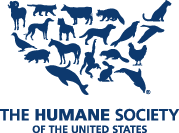 Bon Appétit Management Company, an on-site Palo Alto, CA-based restaurant company offering full food-service management to corporations, universities, and specialty venues with more than 400 cafés in 31 states has announced a Groundbreaking Animal Welfare Policy in conjunction with the Human Society of the United States (HSUS) that says no more gestation crates and battery cages. Bon Appétit Management Company has been a pioneer in environmentally sound sourcing policies by developing programs addressing local purchasing, the overuse of antibiotics, sustainable seafood, cage-free eggs, the connection between food and climate change, and, most recently, farmworker welfare and has received numerous awards for its work from organizations such as the James Beard Foundation, Chefs Collaborative, Natural Resources Defense Council, Environmental Defense Fund, Seafood Choices Alliance, The Humane Society of the United States, and Food Alliance. Per Wayne Pacelle, President and CEO of The Humane Society of the United States “Once again Bon Appétit sets a benchmark that the rest of the food-service industry should strive to meet...We hope this announcement will inspire others to follow Bon Appétit’s forward-thinking lead.” In addition to other socially responsible practices, the company has used exclusively cage-free shell (whole) eggs since 2005 and endorsed legislation to outlaw gestation crates (eight states have now passed such laws). It has also fought against the routine use of antibiotics in farm animals, both to safeguard their efficacy in humans and to end the factory-farm conditions they enable. As part of the new policy, Bon Appétit is: ● Requiring that all pork it serves — currently 3 million pounds annually — be produced without gestation crate confinement systems, using higher-welfare group housing systems instead. ● Switching all of its pre-cracked (liquid) eggs — currently 11 million eggs annually — from hens confined in barren battery cages to hens living in cage-free farms, as it already does for shell eggs. ● Ramping up efforts to seek out the most responsible meat, poultry, and egg producers — those who have received one of the four highest animal-welfare certifications Bon Appétit will also entirely eliminate foie gras (livers of force-fed ducks) and veal from calves confined in crates from its menus. All of these important reforms will be phased in by the end of 2015. The company will also continue to offer and promote vegetarian options daily as part of its Low Carbon Diet initiative (introduced in 2007). “I have never forgotten the terrible things I saw when touring factory farms,” said Fedele Bauccio, cofounder and CEO of Bon Appétit Management Company. From 2004 to 2006 Bauccio served on the prestigious Pew Commission on Industrial Farm Animal Production, which issued a landmark report calling for an end to gestation crate, battery cage, and veal crate confinement of farm animals. “We’ve been asking the industry to do the right thing, but we can’t wait anymore. We have to send the message that these practices are unacceptable. If the supply doesn’t catch up by our deadline, we’ll do what we have to — even if that means cutting back on bacon.” Bon Appétit will continue to work with the most responsible meat and poultry producers to pursue Animal Welfare Approved, Food Alliance, Humane Farm Animal Care, or Global Animal Partnership certification of their animal welfare practices. These four programs have standards that not only prohibit such cruel practices as gestation crates and battery cages, but also require animals to be allowed to engage in their natural behaviors. Bon Appétit vows that by 2015, at least 25% of its meat, poultry, and egg purchases companywide will be sourced from producers that meet one of these four certifications. The company has always encouraged the best farms amongst its suppliers to get the recognition they deserve. This announcement sets an important new baseline for the minimum standards it will accept. Comments are closed.
|


